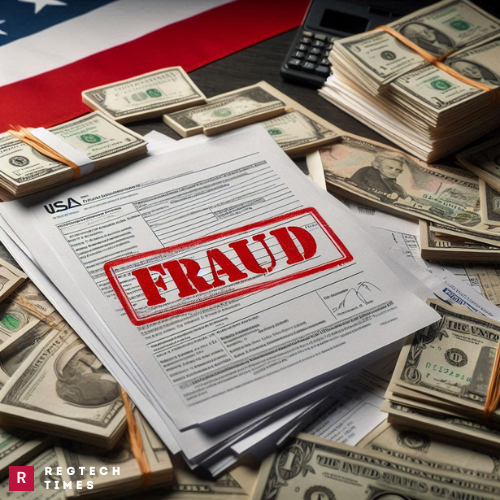A 39-year-old man from Manvel, Texas, has admitted to a series of fraudulent activities that caused losses of over $2 million. Antonio Jackson recently pled guilty to charges of wire fraud after he was found to have carried out a scheme to steal money from the Payroll Protection Plan (PPP). His crimes took place during the COVID-19 pandemic, a time when many small businesses were struggling to survive.
Jackson’s fraudulent actions included submitting fake applications, providing false tax documents, and using fake employee records for businesses that didn’t exist. His schemes targeted programs meant to help hardworking Americans and caused significant financial harm to the government and taxpayers.
False Applications and Fictitious Business
Antonio Jackson’s primary scheme revolved around the Payroll Protection Plan, a government initiative created to assist businesses during the COVID-19 crisis. Jackson submitted four fraudulent applications under the name of a completely made-up business.
In these applications, he claimed to have multiple employees working for the fake business and submitted false tax documents, fake bank statements, and other fabricated records to the Small Business Administration (SBA). By doing this, he successfully stole $491,711 from the SBA.
Arizona Couple, Gehrke and King, Admit to $1.2B Health Care Fraud
The Payroll Protection Plan was designed to provide relief to small businesses struggling to stay afloat during the pandemic. However, Jackson took advantage of the system by exploiting its vulnerabilities. The investigation later revealed that the business Jackson claimed to operate did not exist at all.
Other Fraudulent Schemes
Jackson didn’t stop at defrauding the PPP program. As part of his guilty plea, he admitted to carrying out several other fraudulent schemes.
- Defrauding a Credit Union: Jackson targeted a federal credit union in Washington, D.C., by submitting false applications for home improvement loans. These loans were meant to help people repair or improve their homes, but he used false information to get the money.
- Mortgage Fraud: Jackson also engaged in mortgage fraud by falsely claiming to be an honorably discharged veteran. This allowed him to apply for a Veteran’s Affairs (VA) backed loan, which he was not eligible for.
- Tax Fraud: In Brazoria County, Jackson pretended to be a fully disabled veteran to avoid paying taxes on his residence. This claim was entirely false, but it helped him evade his tax responsibilities.
- Credit Card Abuse: In December 2024, Jackson committed credit card abuse, further adding to his list of fraudulent activities.
Carlos Santos Pleads Guilty to Running a Multimillion-Dollar Fraud Scheme
These combined schemes led to over $2 million in financial losses for various victims, including the government and private institutions.
Sentencing and Restitution
As part of his plea deal, Jackson has agreed to pay full restitution for the damage he caused. Restitution means he will have to repay the money he stole, though it’s unclear how long this might take.
Jackson is currently in custody and will remain there until his sentencing, which is scheduled for April 16. He faces up to 20 years in federal prison for his crimes, along with a potential $250,000 fine. U.S. District Judge Lee H. Rosenthal will determine his sentence.
The investigation into Jackson’s fraudulent activities was carried out by the SBA-Office of Inspector General, with help from the Department of Veteran’s Affairs. Assistant U.S. Attorney Thomas Carter is handling the prosecution of the case.
U.S. Attorney Nicholas J. Ganjei, who announced the guilty plea, emphasized the importance of holding fraudsters accountable. “Going after fraudsters who take money meant for hard-working Americans is a priority for this office. Doing so both upholds the public trust and protects the taxpayer,” Ganjei said.
Jackson’s actions serve as a reminder of the impact fraud can have on programs meant to help those in need. By stealing money from government programs and private institutions, he caused harm to many people and organizations.


